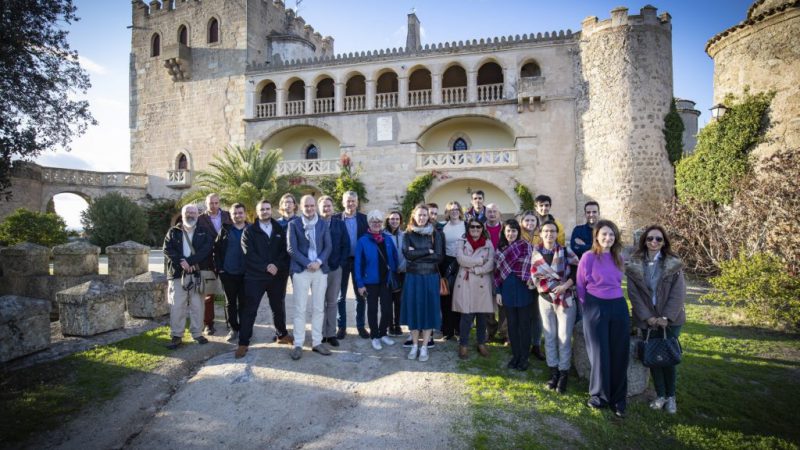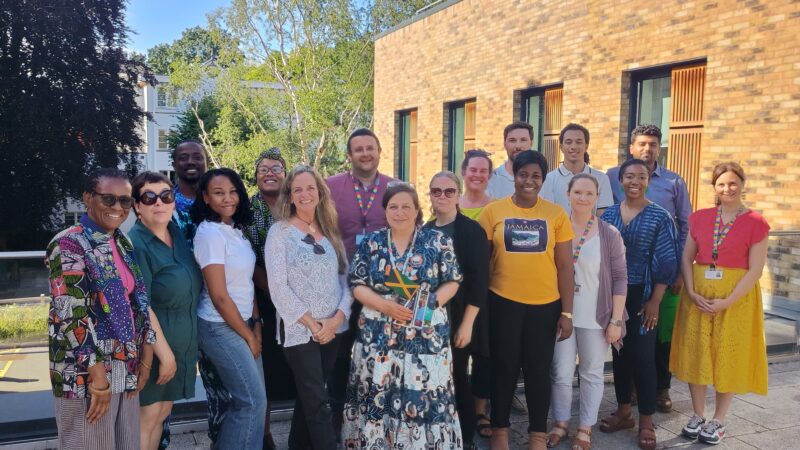
Sharing histories of slavery and colonialism
Launch of a new report
Today, the National Trust has published a report exploring connections between historic places, colonialism and slavery. The research was commissioned last September as part of a broader commitment to represent, share and interpret these links at relevant National Trust places.
Here at INTO, we welcome this report and the chance to join the conversation. Our international National Trust family includes many organisations in the Caribbean and Africa. This is their story too. And by listening to our INTO members, with whom we share these histories, we can find new ways of telling a whole and accurate story.
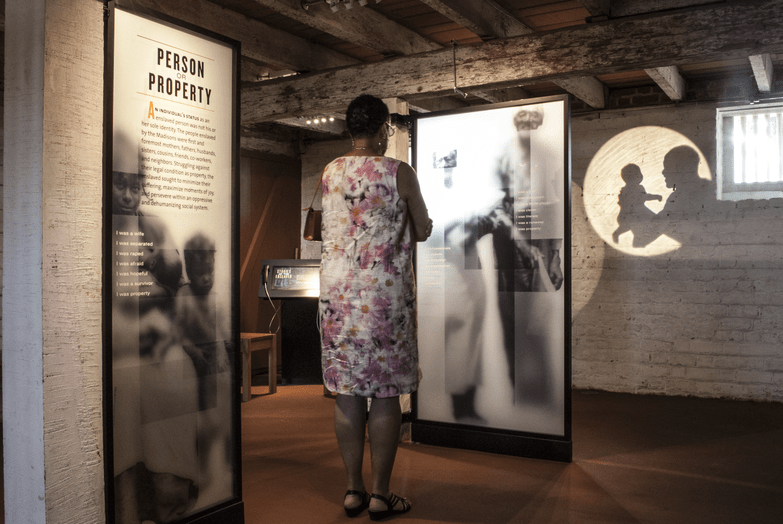
A global story
‘Slavery has been woven into the fabric of British and global history for thousands of years’ said an earlier National Trust article. ‘For 400 years, white British people, companies and organisations gained huge amounts of wealth through the appalling exploitation of enslaved people as part of the slave trade.”
But this is a story that resonates throughout our movement: In America, National Trust historic sites like James Madison’s Montpelier or Decatur House in Washington DC were also the homes and workplaces of enslaved people. In the Caribbean, Barbados National Trust places like Arlington House and the Morgan Lewis Windmill tell the local experience of colonisation, sugar and slavery.
Whilst the Bermuda National Trust’s Verdmont and Tucker House are an important part of the African Diaspora Heritage Trail. Similarly, Bunce Island, site of a seventeenth century British slaving castle now in the care of the Sierra Leone Monuments and Relics Commission, ensures that the histories of enslaved Africans are not forgotten.
The report underlines how connected our stories all are. And when we can’t come together physically, we can still act as one global National Trust movement. Together, we can bring diverse voices into the conversation to enrich and amplify this narrative. Indeed the Trust is inviting everyone to give feedback.
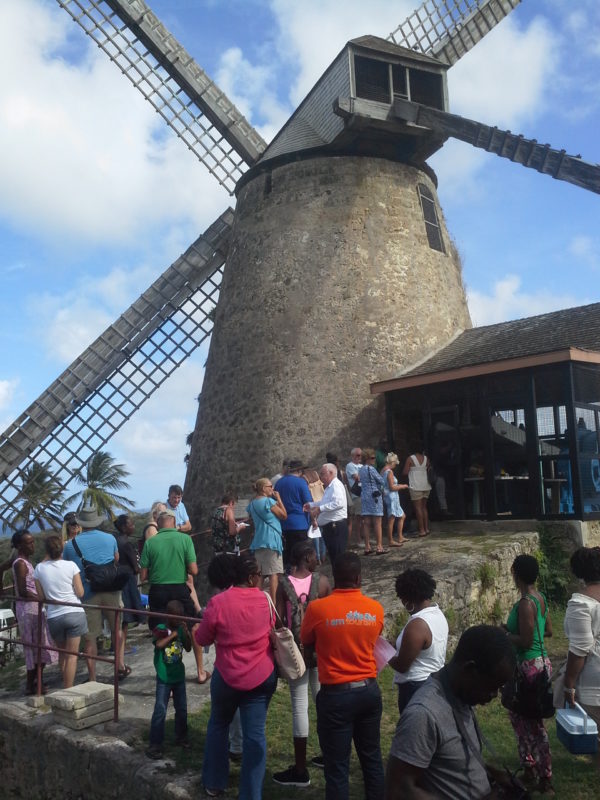
Slavery and colonialism
The report is not a particularly easy read. Well-researched and academically robust, it sets out the facts: Over a third of the National Trust’s properties have direct connections to colonisation, and some to historic slavery.
We hear of plantations and estates across the Caribbean. In Jamaica, Barbados, St Kitts, Anguilla, Montserrat, the Virgin Islands and Grenada, for instance. As well as in the Carolinas and Virginia – all places where we now have INTO members. We read about colonial administrators, governors and chief justices that often never visited their dominions. Of merchants and company directors trading sugar, textiles, coffee, tobacco, cotton, diamonds. And enslaved people traded across the Atlantic, brought home as gifts or even abandoned on an Indonesian island.
“The wealth of a number of the owners of our places and collections came directly from owning sugar plantations, and the enslaved people who worked them” says the Trust.
Anti-slavery campaigners
The survey also documents those National Trust properties belonging to people involved in the abolition movement or the fight against colonial oppression. And it highlights the presence of African, Asian and Chinese people working on English and Welsh estates.
To download the ‘Interim Report on the Connections between Colonialism and Properties now in the Care of the National Trust, Including Links with Historic Slavery’ visit the National Trust website.
These histories are sometimes very painful and difficult to consider... Yet they can also deepen and enrich our understanding of our economic status, our remarkable built heritage and the art, objects, places and spaces we have today.
'These histories are sometimes very painful and difficult to consider. They make us question our assumptions about the past, and yet they can also deepen and enrich our understanding of our economic status, our remarkable built heritage and the art, objects, places and spaces we have today and look after for future generations.'
An opportunity to move forward together
The report and the research behind it echoes discussions we had at INTO Bermuda 2019 about race, slavery and the National Trust movement. Indeed, Gus Casely-Hayford, who spoke so movingly at our conference, has written the foreword for the NTEWNI report.
One of our roles here at INTO is to be a global voice for matters of common concern. This means not only representing the interests of the National Trust movement at the global level, but also supporting our members with their campaigns. We are linking the NTWENI to other organisations around the world to connect these histories of slavery and colonialism globally. And we encourage INTO members to join us in helping create a diverse and inclusive conversation.
The Trust’s report is not intended to make judgements about the past. “No one alive today can ever be held responsible for the wrongs of the period when slavery took place, but we can seek to understand this better,” says Orna-Ornstein.
Today, in the face of growing social injustice around the world, telling the whole story is more important than ever.
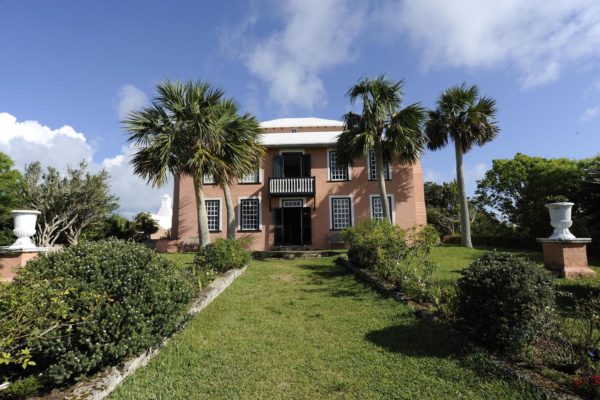
Using our collective voice
INTO fosters partnerships with National Trusts and similar organisations around the world. Some examples of recent collaborations across the Caribbean and West Africa include:
- Our INTO Incubator programme next week will include delegates from the Jamaica National Heritage Trust and the Nevis Historical and Conservation Society. They will join colleagues from around the work to learn about the National Trust model. How it has evolved over the past 125 years and, above all, what elements of the approach can be replicated.
- We awarded TAP-INTO COVID-19 emergency small grants to Trusts in, for example, the Cayman Islands, St Kitts, Montserrat and Saint Lucia.
- Our newest INTO member is the West African Shared Cultural Heritage Trust. We are also developing a new heritage education project with partners in Nigeria and Sierra Leone.
- Our INTO Bermuda 2019 conference provided space for the worldwide National Trust community to debate these issues and share experiences in telling the painful stories of slavery. These were published in our ‘Arms Wide Open‘ document. INTO Online 2021 will provide another focal point for bringing global voices together.
Reactions to the report
“On behalf of the West African Shared Cultural Heritage Trust, I would like to congratulate the NTEWNI on the remarkable work on this report. We deeply appreciate the fact that this work is not just a direct response to the current discourse but a further development on recent projects like the interesting Colonial Countryside. As West Africans, slavery and colonialism are both highly sensitive topics for us and we look forward to mutually enlightening engagements in the future through our networks at INTO.” (Ṣọlá Akíntúndé, Founder Trustee WASCHTrust)
“The National Trust (England, Wales and Northern Ireland) report exploring the connections between historic places and slavery and colonialism is both timely and courageous. The National Trust of Trinidad and Tobago congratulates them on taking this initiative to contribute to a meaningful conversation not only for National Trust organisations around the world but also for the countries we represent. We look forward to contributing to the debate.” (Margaret Mcdowall Thompson, Chairperson, National Trust of Trinidad and Tobago)
“Thank you for sharing this significant document from the National Trust in England, Wales and Northern Ireland. This seems quite epoch-making. I firmly believe it will show us lots of things which have not been told up to now. We, a small national trust body in Japan, have just started to make contact with friends in East Asian countries. We also have a history of colonialism which had large impacts on the nature/culture/landscape of the region. This document will help us with those discussions. We all have to work together to make a picture of ‘a whole and accurate history’.” (Dr Toshihiko Ando, Chairperson of the Totoro National Trust in Japan)
We all have to work together to make a picture of ‘a whole and accurate history'.
Additional resources
Like the NTEWNI, other INTO members are also bearing witness to slavery and colonialism at their historic sites. Here is a small selection of related resources:
- National Trust for Historic Preservation (USA)
- National Trust for Scotland
- Bermuda National Trust
- National Trust of Trinidad and Tobago
In conclusion, we are asking INTO members to share how they are telling histories of slavery and colonialism. This is a global story which can only benefit from wider collaboration, listening to different voices and pooling expertise and experience across the INTO family.
There is more to do, but we are rising to the challenge set us at INTO Bermuda 2019.
'Throughout the world, the stories of the Transatlantic Slave Trade are often ignored or diminished in the field of historic interpretation. Thus, the doors and gates of many of the locations of National Trust properties are not places that people of African descent find trustworthy. How can spaces that were built with the blood, sweat, tears, hands, and intellect of people of African descent not include the stories of African people unless they are in the state of subjugation or being used as tools of entertainment? How do we change this incorrect depiction that has proliferated these spaces? Whose heritage matters?'
Related News

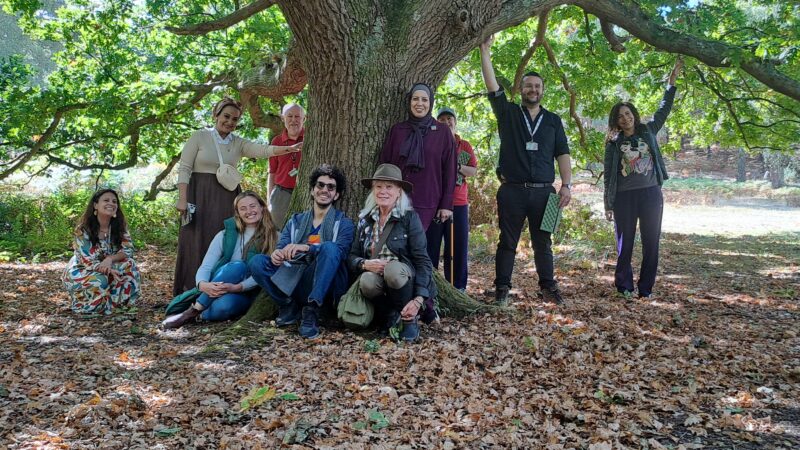
Twinned for learning: Heritage, climate and the next generation
October 9, 2025
